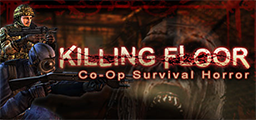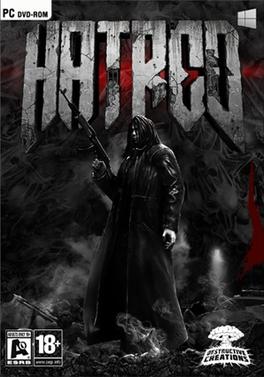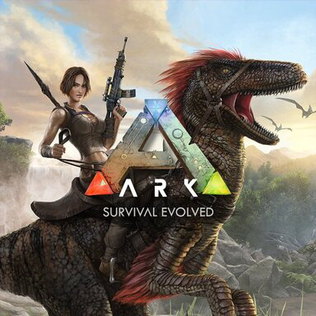
Unreal is a first-person shooter video game developed by Epic MegaGames and Digital Extremes and published by GT Interactive for Microsoft Windows in May 1998. It was powered by Unreal Engine, an original game engine. The game reached sales of 1.5 million units by 2002.

Unreal Tournament is a first-person arena shooter video game developed by Epic Games and Digital Extremes. The second installment in the Unreal series, it was first published by GT Interactive in 1999 for Windows, and later released on the PlayStation 2 and Dreamcast by Infogrames in 2000 and 2001, respectively. Players compete in a series of matches of various types, with the general aim of out-killing opponents. The PC and Dreamcast versions support multiplayer online or over a local area network. Free expansion packs were released, some of which were bundled with a 2000 re-release: Unreal Tournament: Game of the Year Edition.

Unreal Tournament 2004 is a first-person arena shooter video game developed by Epic Games and Digital Extremes. Part of the Unreal franchise, it is the third game in the Unreal Tournament series and the updated version of Unreal Tournament 2003.

Unreal II: The Awakening is a first-person shooter video game developed by Legend Entertainment and published by Infogrames under the Atari brand for Microsoft Windows, the game was later ported to Microsoft's Xbox console by Tantalus. It is the sequel to the 1998 video game Unreal and part of the franchise of the same name. Cliff Bleszinski was an executive producer for the title.

Digital Extremes Ltd. is a Canadian video game developer founded in 1993 by James Schmalz. They are best known for creating Warframe, a free-to-play cooperative online action game, and co-creating Epic Games' Unreal series of games. Digital Extremes is headquartered in London, Ontario. In 2014, 61% of the company was sold to Chinese holding company Multi Dynamic, now Leyou, for $73 million. In May 2016 Leyou exercised a call option and increased their stake to 97% of Digital Extremes for a total consideration of $138.2 million US. In December 2020, Tencent bought Leyou for 1.3 billion dollars, which included the majority stake in Digital Extremes that Leyou held.

Unreal Tournament 3 (UT3) is a first-person arena shooter video game developed by Epic Games and published by Midway Games. Part of the Unreal franchise, it is the fourth game in the Unreal Tournament series, and the eighth and final game overall; its name is in reflection of the game being the first in the franchise to use Unreal Engine 3. It was released on November 19, 2007, for Microsoft Windows, December 10 for the PlayStation 3, and on July 3, 2008, for the Xbox 360. OS X and Linux ports were planned, but they were eventually cancelled. A free-to-play version, entitled Unreal Tournament 3 X, was leaked in late 2022 and cancelled in 2023.

Cave Story is a 2004 Metroidvania platform-adventure video game for Microsoft Windows. It was developed over five years by Japanese independent developer Daisuke "Pixel" Amaya in his free time. Cave Story features 2D platform mechanics and is reminiscent of the games Amaya played in his youth, such as Metroid and Castlevania. After its initial self-published release, the game slowly gained popularity on the internet. It received widespread critical acclaim for many polished aspects of its design, such as its compelling characters, setting, story, and gameplay. Cave Story is considered by many as the quintessential indie game because of its one-person development team and influence on the video gaming world.

The Last Remnant is a role-playing video game developed and published by Square Enix. It was released worldwide for Xbox 360 in November 2008 and for Microsoft Windows in March 2009. A PlayStation 3 version was originally announced as well, but this version was cancelled. A remastered version titled The Last Remnant Remastered was released on PlayStation 4 in December 2018 and for Nintendo Switch in June 2019. The game follows a teenage warrior on a quest to end the war, in a fictional world divided into multiple city-states and inhabited by four different species. Their past includes a conflict over "Remnants", magical artifacts of varying forms. The game features a unique battle system in which the player commands multiple groups, or "unions", of characters rather than individual units.

Killing Floor is a cooperative first-person shooter video game developed and published by Tripwire Interactive. It was originally released as an Unreal Tournament 2004 mod in 2005. A full retail release followed on May 14, 2009, for Microsoft Windows, and for OS X on May 5, 2010. A version for Linux was released via Steam in November 2012.

Dear Esther is a 2012 adventure game developed and published by The Chinese Room. It was released for Microsoft Windows in February 2012 and OS X in May 2012. Ports for PlayStation 4 and Xbox One were released by Curve Digital in September 2016. First released in 2008 as a free modification for the Source game engine, the game was entirely redeveloped for a commercial release in 2012. Featuring minimalistic gameplay, the player's only objective in the game is to explore an unnamed island in the Hebrides, Scotland, listening to a troubled man read a series of letters to his deceased wife. Details of her mysterious death are revealed as the player moves throughout the island.

Alien Swarm is a multiplayer top-down shooter video game developed by Valve. It is a remake of a mod for Unreal Tournament 2004, and it was developed by the original team, who were hired by Valve during the course of the development process.

Coffee Stain Studios AB is a Swedish video game developer based in Skövde. Founded in 2010 by nine University of Skövde students, the company is best known for Goat Simulator, which was released in April 2014, and Satisfactory, released as an early access game in 2019. Their parent holding company also operates Coffee Stain Publishing, a publisher, and majority-owns developers Coffee Stain North and Lavapotion. In November 2018, the Coffee Stain group was acquired by THQ Nordic AB.

The Stanley Parable is a 2013 story-based video game designed and written by developers Davey Wreden and William Pugh. The game carries themes such as choice in video games, the relationship between a game creator and player, and predestination/fate.

Goat Simulator is an action video game developed and published by Coffee Stain Studios. It was released for Microsoft Windows in April 2014, and ports for Linux and OS X were released in June 2014. Mobile versions for Android and iOS were released in September 2014. Versions for the Xbox 360 and Xbox One were released in April 2015, and for PlayStation 3 and PlayStation 4 in August 2015; these ports were developed by Double Eleven. A Nintendo Switch version containing the game and downloadable content was released in January 2019.

The Vanishing of Ethan Carter is a 2014 horror adventure video game developed and published by The Astronauts for Microsoft Windows, PlayStation 4, Xbox One and Nintendo Switch.

Hatred is an isometric shoot 'em up video game developed and published by Destructive Creations that was released on June 1, 2015, for Microsoft Windows. The player character is a misanthropic mass-killer referred to as "The Antagonist", who begins a "genocide crusade" to kill as many human beings as possible. The developer described Hatred as a reaction to video game aesthetic trends such as political correctness, politeness, vivid color, and games as art. Its October 2014 announcement trailer was characterized as "controversial" by multiple video game journalists. The game was shortly removed by Valve from their Steam Greenlight service due to its extremely violent content but was later brought back with a personal apology from Gabe Newell. It was greenlit for a second time on December 29, 2014, and released on June 1, 2015.
Bombshell is a multidirectional shooter developed by Interceptor Entertainment and published by 3D Realms. The game was released on January 29, 2016, for Microsoft Windows. The game runs on Unreal Engine 3.

Ark: Survival Evolved is a 2017 action-adventure survival video game developed by Studio Wildcard. In the game, players must survive being stranded on one of several maps filled with roaming dinosaurs, fictional fantasy monsters, and other prehistoric animals, natural hazards, and potentially hostile human players.

Satisfactory is an upcoming factory simulation game created by Swedish video game developer Coffee Stain Studios. It is a 3D first-person open world exploration and factory building game. The player, a pioneer, is dropped onto an alien planet with a handful of tools and must harvest the planet's natural resources to construct increasingly complex factories for automating all resource needs. The initial goal is to build a space elevator and begin supplying the company the player works for with increasingly numerous and complex components for their unknown purposes. Those exports unlock new buildings that make the next export possible. The factory building aspect of the game has been described as a first-person and 3D version of Factorio.

Lost Ark is an online MMORPG action role-playing game developed by Smilegate RPG, a South Korean video game company. It was released in South Korea on November 12, 2014 by Smilegate. On the first day of launch, the number of concurrent users was 250,000, and within the next week, the number of concurrent users exceeded 350,000. The game can be played in environments that support DirectX 9 or higher. It was first released on November 12, 2014. The Focus Group Test (FGT) was conducted behind closed doors in August 2015, the first CBT was held on August 24, 2016, the second CBT was held on September 15, 2017, and the final CBT was held on May 23, 2018, and the open beta test was conducted on November 7, 2018, and the official release was conducted on December 4, 2019.



















